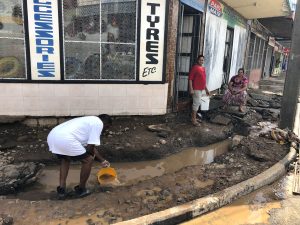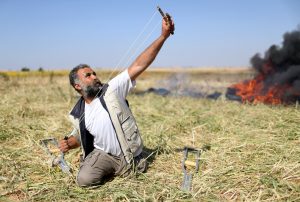
By Lawrence Hurley
WASHINGTON (Reuters) – The Palestinian Authority and Palestine Liberation Organization gained a legal victory at the U.S. Supreme Court on Monday as the justices refused to consider reinstating a $655.5 million jury award won against them by 11 American families over militant attacks in Israel.
The court declined to hear the families’ appeal of a lower court’s 2016 ruling throwing out the jury award secured in a lawsuit brought under the Anti-Terrorism Act, a law that lets American victims of international terrorism seek damages in U.S. courts.
The families had looked to hold the Palestinian Authority and PLO liable for six shootings and bombings between 2002 and 2004 in the Jerusalem area that killed 33 people, including several Americans, and wounded more than 450.
“It’s outrageous that the murderous Palestinian Authority is allowed to kill innocent civilians and not have to pay any cost. This is a horrible travesty of justice for the families and we will not let it stand,” said Nitsana Darshan-Leitner, president of the Shurat HaDin-Israel Law Center, which represents the American families.
Gassan Baloul, a lawyer for the Palestinian defendants, said he was “gratified” that the Supreme Court refused to hear the case. The ruling by the New York-based 2nd U.S. Circuit Court that the high court left in place “respects the constitutional limits on the jurisdiction of U.S. courts,” Baloul added.
President Donald Trump’s administration had sided with the Palestinian Authority and PLO in the dispute, urging the justices not to take up the case because the specific claims could not be brought under the Anti-Terrorism Act.
“The United States condemns acts of terror in the strongest terms and the Department of Justice is committed to prosecuting those who commit terrorist attacks against innocent human beings to the fullest extent that the law allows,” U.S. Justice Department spokeswoman Kerri Kupec said.
“We will continue to support wherever possible all lawful actions to fight terrorism and provide redress to the victims of terrorist attacks and their families,” Kupec added.
The attacks at the center of the lawsuit have been attributed to the al-Aqsa Martyrs Brigades and Hamas. Lead plaintiff Mark Sokolow, his wife and their two daughters were injured in a 2002 suicide bombing in Jerusalem.
JURISDICTION QUESTION
The 2nd Circuit ordered that the civil lawsuit, which began in January 2004, be dismissed. The appeals court said the attacks occurred “entirely outside” U.S. territory, and found no evidence that Americans were targeted. As a result, American courts do not have jurisdiction to hear the claims, it said.
The families said late PLO Chairman Yasser Arafat, who died in 2004, and his agents routinely arranged for payments to attackers and to families of militants who died. The Palestinian Authority and PLO have said they condemned the attacks and blamed them on rogue individuals within the organizations acting on their own.
In 2015, after a six-week trial, a federal jury in Manhattan awarded the families $218.5 million, which was tripled automatically to $655.5 million under the Anti-Terrorism Act.
Lawyers for the plaintiffs said the appeals court decision “eviscerates the Anti-Terrorism Act” by severely limiting what cases can be heard in U.S. courts. They argued that Congress wrote the law specifically to apply to attacks that took place outside the United States in which U.S. citizens were injured or killed, whether or not Americans were specifically targeted.
In a separate case on a similar theme, the Supreme Court in February blocked a group of Americans injured in a 1997 suicide bombing in Jerusalem from seizing ancient Persian artifacts from a Chicago museum to satisfy a $71.5 million court judgment against Iran, which they had accused of complicity in the attack.
The Supreme Court in another case is weighing whether Jordan-based Arab Bank Plc can be sued over legal claims that it helped finance militant attacks in Israel and the Palestinian territories. A ruling is due by the end of June.
(Reporting by Lawrence Hurley; Additional reporting by Maayan Lubell in Jerusalem; Editing by Will Dunham)











